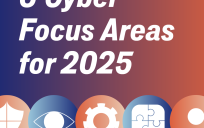In Part 1, I shared a few tips to help you navigate the discomfort often accompanying conversations about diversity, equity, inclusion and accessibility (DEIA). While navigating this discomfort, we will inevitably make mistakes. Most humans avoid mistakes at all costs because they can embarrass us and offend others. Combatting the fear of making mistakes is crucial for personal growth and effective participation in challenging discussions, such as those around DEIA topics.
We All Make Mistakes

It’s important to remember that we’re all human, and we’re all going to make mistakes, especially when we’re discussing complex topics like combating microaggressions, dismantling racism, and disrupting unconscious bias. Because our experiences are unique, we’re not expected to be experts in the evolving DEIA landscape. No one is perfect, and that’s okay. Making mistakes is a natural part of the learning process, so it’s something we should expect and not fear.
10 Tips to Build Your Confidence for DEIA Discussions
We don’t want our fear of making mistakes to hinder us from engaging in impactful DEIA discussions. I’ve listed a few strategies to help reduce this fear and build confidence while navigating through your DEIA discussions.
1. Shift Your Mindset
- Embrace mistakes as learning opportunities: Reframe mistakes as valuable learning experiences. Each mistake provides an opportunity to gain new insights, improve your approach, and build resilience.
- Adopt a growth mindset: Cultivate a mindset that sees challenges and mistakes as part of the learning process. A growth mindset focuses on the potential for improvement rather than perfection.
2. Prepare and Educate Yourself
- Increase your knowledge: The more informed you are, the less likely you are to make mistakes and the more confident you’ll feel. Take the time to learn about the topics you’re engaging with, whether it’s DEIA or another complex issue.
- Practice scenarios: Role-playing or practicing difficult conversations with a trusted colleague can help reduce anxiety and prepare you for real-life situations, making you feel more confident in your ability to navigate them.
3. Accept Imperfection
- Acknowledge human fallibility: Understand that everyone makes mistakes, and perfection is unattainable. By accepting this, you can reduce the pressure you always place on yourself to get things right.
- Focus on progress, not perfection: Shift your focus from being perfect to making progress. Celebrate the small steps you take toward improvement, even if they involve mistakes along the way.
4. Build Emotional Resilience
Add the two tips below to the ones I shared in Part 1: Embrace Vulnerability and Develop Emotional Resilience.
- Develop self-compassion: Be kind to yourself when mistakes happen. Self-compassion involves recognizing that mistakes are a natural part of being human and treating yourself with the same kindness and understanding you would offer a friend.
- Practice mindfulness: Mindfulness techniques, such as deep breathing or meditation, can help you stay grounded in the present moment and reduce anxiety about potential mistakes.
5. Seek Feedback and Support
- Ask for feedback: Proactively seeking feedback can help you learn from your mistakes and understand how others perceive your actions. Feedback can guide your improvement and make you less fearful of future mistakes.
- Build a support network: Surround yourself with supportive colleagues or mentors who can offer guidance and reassurance when you make a mistake. Knowing you have a safety net can alleviate some of the fear.
6. Take Calculated Risks
- Start small: Begin by taking small risks or conducting experiments where the stakes are lower. As you build confidence, you can gradually take on more significant challenges, knowing that mistakes are part of the journey.
- Learn from low-stakes mistakes: Use minor errors as opportunities to learn and adapt, which will help you build the confidence to handle more substantial challenges without the same level of fear.
7. Focus on the Bigger Picture
- Prioritize the goal: Keep the ultimate goal in mind, whether fostering inclusivity, improving communication, or promoting equity. This focus can help you overcome the fear of making a mistake, as the importance of the goal outweighs the discomfort of potential errors.
- Understand the impact: Recognize that the positive impact of engaging in challenging conversations or taking action often outweighs the negative consequences of making a mistake. The potential for growth and progress can be a strong motivator.
8. Learn from Others
- Study role models: Observe how leaders or colleagues you admire handle mistakes. Learning from their experiences can provide valuable insights and strategies for managing your own fears.
- Share your experiences: Engage in discussions with others about mistakes they’ve made and how they overcame them. Listening to others’ experiences can normalize infallibility and provide you with practical advice.
9. Reflect and Adapt
- Analyze mistakes constructively: When mistakes happen, take the time to reflect on what went wrong and why. Use this analysis to inform your future actions and avoid similar mistakes.
- Implement changes: Make the necessary adjustments based on your reflections. Knowing you have a plan for improvement can reduce the fear of repeating the same mistake.
10. Keep Moving Forward
- Don’t dwell on mistakes: While learning from mistakes is essential, it’s equally important not to dwell on them. Acknowledge the mistake, learn from it, and then move forward with a renewed focus on your goals.
- Take action despite fear: Sometimes, the best way to combat the fear of making a mistake is to do it anyway. The more you engage in challenging situations, the more comfortable you’ll become with the possibility of making mistakes.
By employing these strategies, you can reduce the fear of making mistakes, build confidence, and approach DEIA discussions with a mindset that values learning, curiosity, and growth over perfection.
Deadra Welcome is the Founder and Principal Consultant of Concerning Learning LLC., where she elevates workplace culture by focusing on team cohesion, diversity and inclusion, and leadership development. Using a unique blend of instructional design, facilitation, and coaching techniques, Deadra creates tailored solutions for improved organizational performance. Using her 27 years of federal government service and nearly 30 years in the culture and performance industry, she strives to make learning extraordinary and create spaces where everyone belongs and thrives.





Leave a Reply
You must be logged in to post a comment.